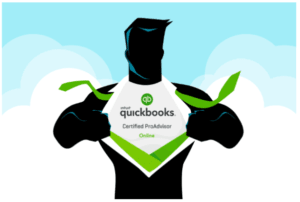
The volume of your financial activity, including annual revenue and the average number of transactions each month, will influence the scope of bookkeeping services required. If you have employees, payroll processing will be an https://blog.ricepaarijat.com/best-restaurant-accounting-software-for-cafes/ additional consideration. If you’re like most business owners, you’re not interested in recording all the details of every financial transaction yourself. When you need high-level business advice and official reports, then you need an accountant.
Write a Job Description
Understanding their typical workflow Oil And Gas Accounting and communication style is also important. Ask how they prefer to communicate, whether through email, phone calls, or secure messaging platforms, and their availability for urgent matters. Discuss their preferred methods for exchanging financial documents, emphasizing the need for secure and encrypted channels to protect sensitive financial information.
- It’s also a great option if you only need a few hours of work each week or want to avoid managing another employee.
- Whether it’s explaining financial reports or discussing cash flow issues, clear communication is vital.
- A bookkeeper with strong technical skills can significantly streamline your financial processes and provide valuable insights.
- The platform is easy to use but doesn’t offer full bookkeeping features like product inventory and pre-invoice documents.
- Experience in bookkeeping, proficiency in accounting software, and knowledge of relevant regulations are also important.
- Common misconceptions include the belief that only large businesses need bookkeepers or that they only handle tax preparation.
# Only one person is responsible for your bookkeeping.
(Based on data from Bureau of Labor Statistics, Salary, Payscale, Glassdoor, and Indeed.) This comes out to $3,200 – $3,520 per month, or an average hourly wage of $20 – $22. So let’s break down the various bookkeeping options, who they’re best for, and how much you’re likely to spend on them. You also have to think about the size of your business, not to mention its structure and complexity. Ultimately, these are all different ways bookkeepers help drive profitability and growth. If all the things on this list are happening to you, then you should have already hired a bookkeeper by now. But for those of you who have never hired a bookkeeper before, you may not know how to approach this.
- If your prospective bookkeeper does, you should consider what you’d do if they’re sick or call out for other reasons—have a backup plan in case your bookkeeper is out of office.
- You may want to ask about pricing, availability, and what type of work they can do.
- Additional services might encompass invoicing, detailed expense tracking, or assistance with budgeting.
- Bookkeeping involves systematically recording an organization’s financial transactions.
- Once your specific bookkeeping needs are clearly defined, the next step involves identifying potential bookkeeper candidates.
- By delegating tasks to this position, it frees up your time and allows you to focus on other areas of your company.
Ready to offload your bookkeeping tasks?

Depending on your business’s how to hire a bookkeeper bookkeeping needs, you may not need to hire a bookkeeper full-time. Smaller companies generally won’t have enough work to employ a bookkeeper full-time, so consider other hiring options. If they do agree to provide retroactive records, you could end up with a pretty hefty bill. The cost of full-service accounting is hefty, and CPAs tend to charge a higher hourly rate than bookkeepers. Our dedicated experts research and test SMB solutions so you can make smart, confident decisions.


Choose a bookkeeper who is experienced and familiar with your industry and state’s accounting and tax regulations. If you use QuickBooks, look for someone who is QuickBooks-certified. You can find qualified bookkeeping professionals through referrals or online resources like QuickBooks ProAdvisor.

